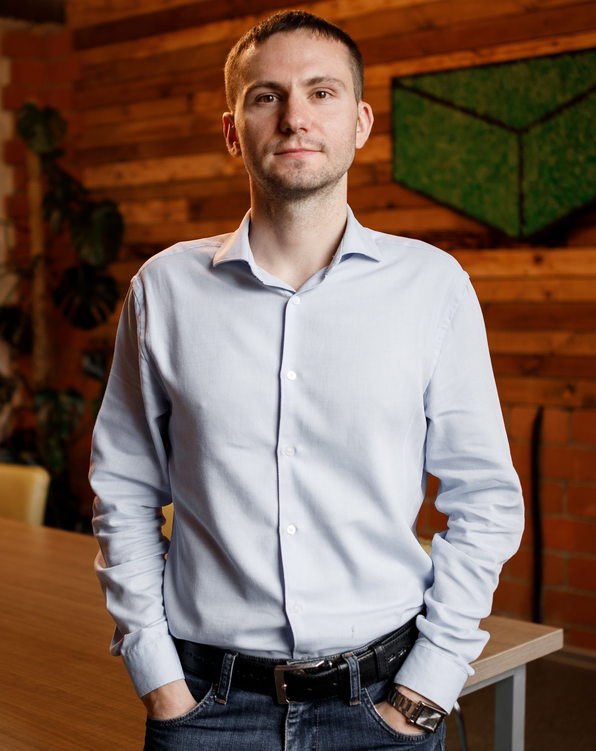The role of AI in the working routine of Vilmates
Vilmate expertiseartificial intelligencedevopshrtechnologyArtificial Intelligence and the related terms crossed the line of just popping up in local technological discussions long ago. They’ve become common for a huge number of people in IT and not only.
So, following this tendency, we asked a couple of our teammates from different positions about how they think their working environment changed with the spread of versatile AI/ML-related tools.
The first is Serhii Pruhlo, Lead Technical Recruiter, with vast experience in dealing with vacancies, candidates, industry fluctuations, and volumes of demand for services in IT. The view from such position gives a good understanding of the current environment in tech and the connected directions.

Have you noticed the presence of AI tools in your routine activities? Maybe the switch in search algorithms of candidates or list of tools for data processing? Or maybe you saw that most CVs are written with ChatGPT? :)
In my job, I mostly use Linkedin and Linkedin Recruiter. Of course, for these platforms, the candidates that fit best to your requirements or those who show interest in the vacancy are in the first line of display. It was like this before and basically, it’s still how it works. But I noticed that let’s say, in 2018, things were less bright. I also use translators like DeepL quite often, and they’re way more powerful now than then.
As for ChatGPT - I absolutely love it! Extended CVs, detailed lists of requirements and responsibilities in companies, composing letters to clients and candidates - it will help with everything. Yes, it won’t do all the job for you, but as a versatile assistant, with proper communication and task setting, some aspects of the working routine become way less stressful.
What do you think, do companies pay more attention to candidates who have more experience in applying AI tools and services than they used to?
It depends on the specifics of the vacancy, of course. For me personally, in the data I work with, I can’t say that it’s obligatory most of the time. At least for now. But pointing out all the skills you’ve got may work as an additional bonus when considering a candidate.
In the background of such a long journey in recruitment, do you think these AI tendencies are connected with the actual market transformation? Or is it another loud but impermanent trend?
At present, the market transformation is evident. Though I’m not a technical specialist, a part of my job is, so to say, keeping my nose to the wind. I can say that this transformation is connected partially to the rise of AI and partially to the global economic crisis, war in Ukraine, and multiple other factors.
If we speculate, in the future, a significant part of the code base creation and management is likely to be delegated to LLM systems. Actually, it’s already happening. Well, for instance, Meta has recently introduced CodeLlama 70B, which was trained on code. I guess thousands of DevOpses around the world are already getting used to the thought that they might need their own LLMs. For the sake of security to say the least. But some changes take years or even decades. Let’s not forget that too.
And now we have Andrii Bezymennyi, a Data Science specialist with many years of experience in working with AI/ML models. Andrii works closely with the technical aspect of the topic, so his points of view are of great interest.

How long have you been researching and working with AI tools and systems? Can you say that the demand for the specialists of your direction is going up?
I’ve been working with AI and everything related to it since 2017. That’s when I started working with machine learning models. Back then, when the Earth was flat :), we had to build custom ML models for each task. Now, you can set a pre-trained model, which saves quite some time.
As for the demand, honestly, it’s always been quite stable. The specifics of the tasks I work on have changed, that’s for sure.
Can you give us an example of what you use regularly in your current job? If it’s not a secret, of course.
One of the core things in my job is to make the right choice when picking models without API. Adjusting it properly to your needs is also vital. So, LLM Studio does the trick for me.
What would you recommend to pay attention to in 2024 for the colleagues from your sphere of expertise?
I’d recommend to start making good friends with Prompt Engineering, if you still haven't. I’m sure they know what I mean. And to those who are less familiar with the topic - prompt engineering is how they make well-known GPT models smarter. I think this will be a significant part of our future.
We are grateful to our interviewees for their sincere answers. The topic of AI emerging in our daily lives will stay a hot buzz for some years, so expect more discussions on this and other relevant global and local matters.
Be sure that our executive team can help you with any case of any complexity at any time of the day.
Stay tuned with Vilmate! Until we meet again!





